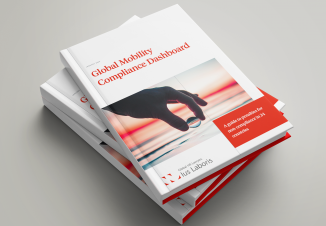
In the first half of 2023, ESG trends in Korea have continued to be as dynamic as in the past few years. The Federation of Korean Industries (FKI) conducted a survey on the 2023 ESG Trends among 100 of the top 500 companies, ranked by sales. 93% of respondents indicated that ESG management would increase this year. Key areas of interest were mandatory ESG disclosure, improvement of ESG evaluation, and the response to the EU Directive on Corporate Sustainability Due Diligence. Korean government is also taking steps to strengthen its policies to promote ESG management. To this end, in February 2023, it established the Private-Public Joint ESG Policy Council, comprised of relevant government agencies (including the Ministry of Strategy and Finance, the Ministry of Commerce, Industry and Energy, the Ministry of Environment and the Financial Services Commission) and private sector organisations (including the Korea Chamber of Commerce and Industry and the Korea Federation of Small and Medium Business), which has been holding regular meetings. The key ESG trends of the first half of 2023 are explained in further detail below.
In January 2021, the Financial Services Commission announced its plan to adopt mandatory ESG disclosure rules for the first time. According to the plan, ESG disclosure, which is not currently mandatory, will become mandatory for KOSPI-listed companies with assets exceeding KRW 2 trillion from 2025 and for other listed companies by 2030. We are seeing an uptick in ESG disclosure by companies, in line with the global trend towards more widespread ESG disclosure. With the adoption of the EU’s European Sustainability Reporting Standards (ESRS), the US Securities and Exchange Commission’s (SEC) Climate Disclosure Mandate, the International Sustainability Standards Boards’s (ISSB) S1 (General Requirements), and S2 (Climate Disclosure), Korea is also preparing its own disclosure standards and timelines for mandatory disclosure by establishing the Korea Sustainability Standards Board (KSSB). The KSSB was established within the Korea Accounting Institute in February 2023 to review disclosure policy. The Korean government has also formed the ESG Financial Promotion Group at the Financial Services Commission.
Key issues in the current disclosure policy include:
The Financial Services Commission is expected to take a stance on these issues and announce a roadmap on implementation later this year.
As the importance of human rights and environmental protection in the supply chain increases, the EU’s supply chain due diligence rule – the Corporate Sustainability Due Diligence Directive (CSDDD) – is expected to be finalised in the near future. This will directly affect Korean exporters, as they are part of the global supply chain ecosystem. In particular, small and medium-sized suppliers are very concerned about their lack of capacity to respond to new supply chain due diligence requirements.
There are about 18,000 Korean domestic companies (16,000 being SMEs) that export to the EU. Major challenges for exporters in Korea include a lack of internal resources to cope with the new rules, the cost of things like consulting and training, a lack of information on ESG trends, and a lack of awareness about the importance of ESG management by business partners.
As a result, business organizations such as the Korea Chamber of Commerce and Industry and the Korea Federation of Small and Medium Business have strengthened their joint efforts to respond to the EU CSDDD, while some large companies have begun providing necessary support such as ESG management inspections and consulting services to their partners. On the other hand, through the Private-Public Joint ESG Policy Council, companies are submitting various proposals such as expanding education and training for professionals who need to respond to supply chain due diligence, building an ESG data integration platform to reduce the administrative burden of due diligence, and providing consulting support tailored to the needs of specific industries. The government has announced its support for supply chain due diligence consulting for small and medium-sized companies facing difficulties, as well as educational support for training experts within those companies.
On the other hand, similar to the EU CSDDD, enacting a Korean version of the supply chain due diligence rules for domestic companies and domestic importers is being advocated. A Bill on Human Rights and Environmental Protection for Corporate Sustainability was submitted to the National Assembly in early September, signed by 15 members, and the progress of this proposed legislation will need to be closely monitored.
Similar to the global ESG evaluation agencies like MSCI, S&P, and Sustainalytics, there are several evaluation institutions in Korea. These include the Korea ESG Standards Institute (KCGS), Sustinvest, and the Korea ESG Research Institute, which are the three leading evaluation institutions. However, domestic and international companies as well as academics are consistently pointing out that evaluation results are unreliable and that the evaluation system lacks transparency. These issues are likely to weaken companies’ motivation to improve ESG performance, and thus, should be resolved. As a result, the International Organization of Securities Commissions (IOSCO) announced its top 10 recommendations for ESG evaluation in November 2021. The OECD is also expected to revise the G20/OECD corporate governance principles in the second half of 2023. Additionally, Japan announced a code of conduct for ESG evaluation agencies in December 2022.
Korea has also established a consultative body for ESG evaluation agencies, which has devised guidelines on internal controls for evaluation agencies, data collection and the management of private information, disclosure concerning evaluation systems, and the management of conflicts of interest. These guidelines were implemented in September 2023. In addition, the Korean government announced that it will monitor their implementation and review the legal framework if necessary.
Prevention of greenwashing is also a crucial part of ESG management. Korea regulates labeling and advertising that makes a environmental claims under the Act on Fair Labeling and Advertising and the Environmental Technology and Industry Support Act. Under the Act on Fair Labeling and Advertising, the Korea Fair Trade Commission administers the Environmental Labeling and Advertising Review Guidelines.
In June 2023, the Fair Trade Commission issued an administrative notice to enhance the effectiveness of the Guidelines. The notice includes, among other things:
The Ministry of Environment also announced its plan to amend the Environmental Technology Industry Support Act this year to strengthen its policy to prevent greenwashing by adding a provision on fines, which have been considered insufficient.
In order to promote ESG management, a draft Framework Act on ESG (ESG Framework Act) was announced in July, at an open meeting under the leadership of National Assembly Member Lee Won-wook. The key point is to reflect ESG principles in corporate management and to establish a system of incentives for companies that enter into an agreement on ESG management with the government. It also contains a comprehensive government-level plan to encourage corporate ESG management.
Since the draft ESG Framework Act is a domestic rather than an international measure, it has caught the attention of Korean companies. However, it is still in the early stages of discussion. Thus, it remains to be seen whether it will be officially proposed and enacted into law. The companies that participated in the debate were in agreement with the purpose of the bill, which, in theory, is expected to provide incentives to promote ESG. However, they also expressed concerns that it might impose a significant regulatory burden on businesses.
ESG is becoming an increasingly important topic for businesses, and listed companies, as well as companies with cross-border operations or international supply chains may need to adapt quickly to a range of new reporting requirements that have – or will soon – come into effect. Domestic measures in Korea are also evolving, and this should be monitored closely.

